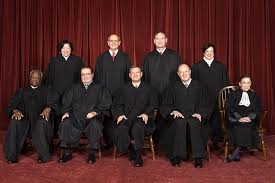Supreme Court to Police: Get Warrant for Blood Tests
A recent Supreme Court decision requires police officers to get a warrant if a suspected DUI driver refuses to take a blood test voluntarily. This ruling could eventually impact procedures in future cases of DUI in Los Angeles.
In a split decision, five of the eight justices said that police may not arrest a driver for refusing a blood test if they do not have a warrant. The Court ruled that warrantless blood tests violate drivers’ Fourth Amendment constitutional rights. The same justices also said that the same protection did not extend to drivers when it came to breathalyzer tests, because the breath tests are less intrusive than blood tests.
In dissenting opinions, two justices said that warrants should be required for both blood and breathalyzer tests; one said that they should be required for neither.
The Supreme Court was ruling on three cases—two from North Dakota and one from Minnesota—that had raised the issue of warrantless blood tests for drivers accused of DUI. Those two states, plus 11 others (Alaska, Florida, Hawaii, Indiana, Kansas, Louisiana, Nebraska, Rhode Island, Tennessee, Vermont and Virginia) have laws making it a crime for a driver to refuse a request for a blood alcohol test when an officer suspects that a motorist is driving under the influence.
 Los Angeles Criminal Defense Attorney Blog
Los Angeles Criminal Defense Attorney Blog

